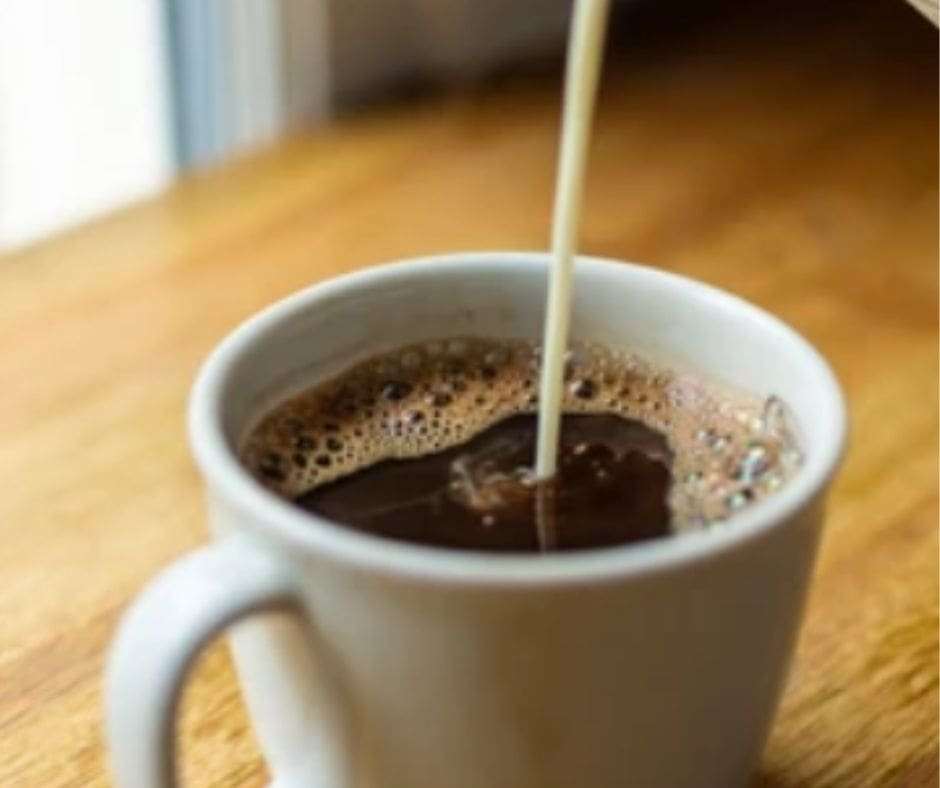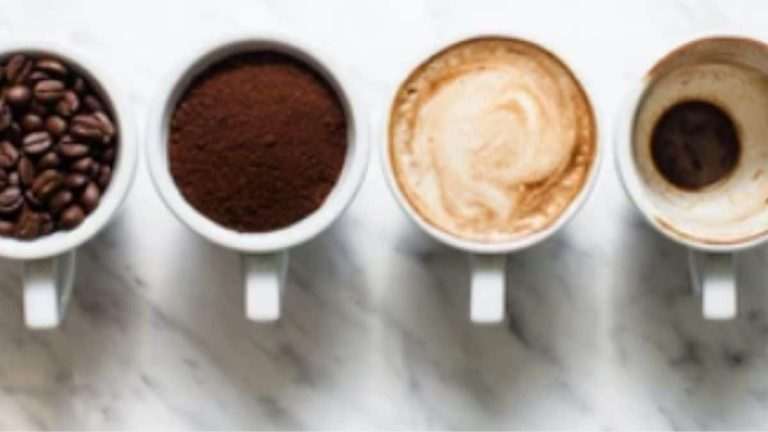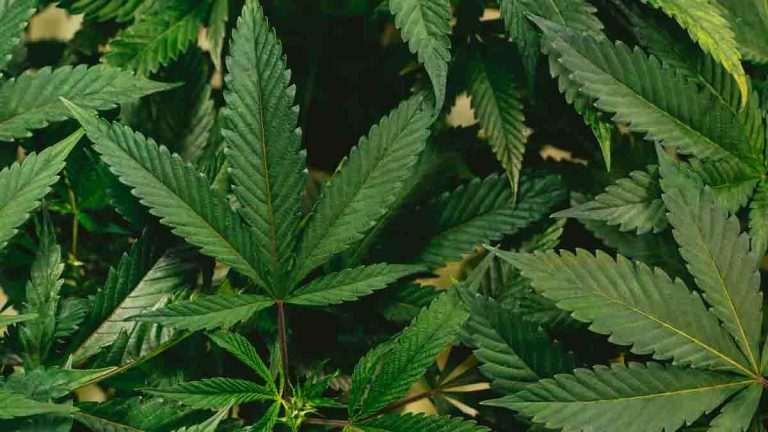Why doesn’t coffee wake me up?
Drinking coffee is often an essential part of surviving through the day and staying awake. Coffee has become an integral part of waking up in the morning. You could even say that it’s a way to start off our day. Some even have their morning coffee routine ( a phrase I never thought I would jot down ). The most common question I’ve heard people ask about coffee is: Why doesn’t coffee wake me up?
Studies show that a good night’s sleep can boost your memory and give you time to clear your mind and relax. Even more importantly, sleeping more can shrink the size of tumors. In the long term, not getting enough sleep could cause serious health conditions including diabetes, heart disease, and early death.
Coffee is like a religion in the United States. We drink it at home, we drink it at work, we drink it while we’re driving, and some of us even have a special mug that we reserve only for our morning java. There’s nothing like a cup of coffee to start your morning off right, right?
Trouble is, not everyone agrees.
Some people claim that drinking coffee actually makes them feel drowsy. You might be one of these people. You might also be surprised to learn that you’re not alone; many people seem to experience the opposite effect as well, and find themselves wide awake even after downing caffeine all day long.
So why doesn’t coffee wake me up?
First of all, if you don’t normally drink coffee or caffeine regularly, then you can bet your first cup will make you feel more awake than usual. This is just because your body isn’t used to it! But if you’re a daily coffee drinker who still has this problem, there are a few other possibilities:
You may be a slow metabolizer of caffeine. Some people just break down and eliminate caffeine much more slowly than others.
Sometimes, it’s a combination of caffeine and the components in coffee. Caffeine is absorbed into your bloodstream quickly, so it gives you an immediate boost. But if you drink coffee regularly, your body gets used to it, so you need more and more coffee to get the same boost.
Taurine and adenosine are also found in coffee. Taurine can help with mental energy and alertness, especially for people who are tired or stressed. Adenosine has a calming effect that can help people relax by slowing down their breathing and heart rate. However, if you drink coffee all day long, your body builds up a tolerance to these chemicals too, so they no longer have the intended effect.
In other words: Caffeine creates an immediate buzz because it’s a stimulant — your brain gets a rush of energy from all the extra blood flow when caffeine enters your bloodstream. Taurine and adenosine help keep you relaxed throughout the day, but they only work if they’re fresh in your system. If you repeatedly drink coffee every day, your body eventually adapts to these chemicals too.
How much caffeine is too much?

How much caffeine is too much? The answer to this question will depend on your age, weight, tolerance, medical history, and the amount of caffeine you consume. Generally, excess caffeine consumption can lead to nervousness, irritability, and sleeplessness.
Tolerance to caffeine varies greatly from person to person. Half of all people can handle about 300 milligrams a day before experiencing negative side effects. Others can drink 500 milligrams or more before feeling the effects.
An estimated 85 percent of people can metabolize about 300 milligrams of caffeine per day without unpleasant effects, though some people are more sensitive than others. Studies have shown that the average daily intake among U.S. adults is about 200 milligrams (or roughly two cups of coffee) per day, with one-third of adults consuming at least 500 milligrams per day — enough to cause mild symptoms like nervousness and insomnia in most people.
It’s important to remember that the average cup of coffee contains about 100 milligrams of caffeine. A 12-ounce cola has about 40 milligrams. It’s easy to quickly consume a large amount of caffeine just by drinking several cups of coffee or caffeinated soft drinks throughout the day.
Research suggests that consuming more than 400 milligrams per day — or around four cups of coffee — can increase blood pressure and heart rate in healthy adults (and trigger asthma symptoms in those who already have it). Men may be able to tolerate more than women because of differences in body size and metabolism.
Common signs that you’re drinking too much caffeine include:
– Nervousness
– Irritability
– Headaches
– Muscle tremors
– Sleep problems, including insomnia and restless sleep
– An increased heart rate (tachycardia)
– Increased blood pressure (hypertension) – Stomach upset – Dizziness – Nausea – Diarrhea
Coffee Alternatives To Wake You Up

Deciding to drink coffee instead of soda or tea can save you a lot of money in the long run. Getting your caffeine fix at home not only saves you money but can also make you healthier. With that in mind, it’s a good idea to make sure you have some alternatives on hand for when you start to get sick of the taste of coffee. Here are some alternative drinks that will keep you awake and feeling refreshed.
Coffee is a morning staple. Millions of people wake up and brew themselves a cup of joe in the morning to help them get going or to get through the day. While it is a delicious and highly caffeinated beverage, there are other alternatives that can help you wake up in the morning. Below are some great coffee alternatives that can help you avoid the morning Starbucks line, and save you money in the process! —–
- Green Tea:
Green Tea contains just as much caffeine as coffee, without all of the calories. The caffeine in green tea can also help curb your appetite so you’re not constantly snacking throughout the day. If you’re looking for something that will give you a boost but won’t keep you awake at night, green tea is probably your best bet.
- Black Tea:
Black Tea contains more caffeine than green tea, but less than coffee. It’s also loaded with antioxidants like Vitamin C, E and A that promote healthy skin and reduce free radicals in your body.
- Decaf Coffee:
Decaf coffee contains about 1/10th of the caffeine in regular coffee, which makes it ideal for early mornings when you’re tired but don’t want to be jolted awake by a lot of caffeine.
- Tisanes:
Tisanes are often recommended as coffee alternatives because they’re primarily caffeine-free and don’t contain any of the harmful additives present in coffee drinks. Green and white teas in particular are good choices. Black tea is a less desirable choice, since it contains significant amounts of caffeine and other compounds that promote inflammation. Chamomile tea is also a good alternative to coffee, but if you like your tea sweetened, keep in mind that most sweeteners contain caffeine. Herbal teas like peppermint and chamomile are particularly beneficial for soothing upset stomachs and calming digestive systems, thanks to their naturally occurring oils.
- Energy drinks:
If you need something to get you going in the morning, energy drinks are another viable alternative to coffee. Caffeine is an effective stimulant because it causes blood vessels to dilate, which produces a temporary boost in energy and alertness. However, caffeine can also cause nervousness and irritability.
Why can’t I stay awake after drinking coffee?

A lot of people like to drink coffee in the morning to wake up or stay awake. But we can’t stay awake after drinking coffee. What’s the reason?
There are lots of reasons that make us feel uncomfortable when we drink coffee.
1, Coffee is acidic.
Coffee is acidic, and our stomach is alkaline, so acid and alkaline react with each other when they come close to each other. The acid in the coffee irritates our stomach lining, which causes discomfort like heartburn and abdominal pain.
2, Coffee contains caffeine.
Coffee contains caffeine, which makes us feel uncomfortable when we drink it when it’s too hot or too cold. Caffeine also makes your heart beat faster and your blood pressure rise, which can make you feel restless. If your body is not used to caffeine, you may have a headache after drinking coffee for the first time because it stimulates your brain cells.
3, Coffee has tannin in it. Tannin also makes us feel uncomfortable when we drink it when it’s too hot or too cold. When you drink tannin-containing beverages like tea or coffee, you will make your salivary glands secrete more saliva than normal because of the tannin inside.
Also, Tryptophan is an amino acid produced by the body. It is one of the nine essential amino acids needed for the body to function properly, and it is a precursor to serotonin, which is a neurotransmitter that regulates mood, sleep, and appetite. Tryptophan is also used by the body to make niacin (vitamin B3), melatonin (the sleep-inducing hormone), and kynurenine (a major metabolite of tryptophan).
Coffee stimulates the production of insulin in order to clear glucose from the bloodstream. Insulin lowers blood sugar levels, so after its release into the bloodstream following ingestion of caffeinated beverages like coffee or tea, cells absorb more glucose from food. This causes blood sugar levels to drop rapidly after eating a meal heavy in carbohydrates. This causes fatigue and drowsiness because cells are not getting enough energy from glucose due to this quick drop in blood sugar levels.
How do you wake up if coffee doesn’t work?
If you have trouble waking up in the morning, here are some tips to help you wake up easier
1. Drink a glass of water. This can help because it’s a natural diuretic, which means that it makes you feel like you have to go pee. That feeling will trigger the rest of your body to wake up with you.
2. Perform a quick workout. Jogging in place and stretching for 5 minutes is enough to get your blood flowing and get your brain working.
3. Don’t eat a big meal before bedtime. You may be able to fall asleep easily, but don’t expect to wake up with an empty stomach; eating a light snack before going to sleep will make sure that you don’t wake up hungry and cranky!
4. Keep stress at bay. Stress can wreak havoc on your ability to wake up on time so try not to worry about everything that’s going on in your life.
5. Pick a consistent time for waking up every day, even on the weekends! If you’re getting enough sleep, then your body should be more than ready for another day of fun when the alarm clock goes off!
What do you do if coffee doesn’t energize you?
If you have a job to do, you want to be as productive as possible. But sometimes, you just can’t find the energy to do it.
But what if coffee doesn’t work? Or what if it gives you the jitters and makes you feel unpleasantly wired? If coffee doesn’t give you the boost of energy that you need, are there other options available?
Many people turn to caffeine when they need that extra burst of energy to get things done. They drink coffee or eat caffeinated candies or drinks like soda. Some people also chew caffeinated gum or use caffeine patches or other similar products.
Well, what if your body has become used to getting a dose of caffeine every day and now cannot function without it? There are several possible consequences of being dependent on caffeine. One is that your mind never gets a chance to slow down and relax because your body keeps making more adrenaline in anticipation of the caffeine kick. This can lead to stress and tension that might interfere with mental clarity and concentration.
Another problem is that the body becomes used to getting its energy from the outside rather than from its own internal resources. When this happens, people often feel more tired than before they started drinking.
Why does coffee doesn’t affect me?
Why does coffee doesn’t affect me? I can drink it all day long and still be clear-headed. I’m wondering if I’m missing something or if my body is somehow different from others.
Tastes vary, but the amount of caffeine in a cup of coffee is about 100 – 200mg. That’s about 1/10th as much as a cup of tea or soda. The amount of caffeine in chocolate is even less. You’d have to drink a lot of coffee to get any serious effect.
Here’s some things that affect how your body processes caffeine:
Your genes play a major role, just like they do with so many other things, including your height, weight, and hair color. Some people are more sensitive to caffeine than others.
Your age matters too. The older you are, the less sensitive you are to caffeine because your body is used to it already. For example, kids who consume too much caffeine might have panic attacks and feel their heart race; that doesn’t happen with adults as often because they’re used to caffeine by then.
Your liver plays a role in how you process caffeine (as well as other drugs and hormones). If your liver isn’t working well, you’ll break down the drug more slowly.
Why does coffee make me tired but energy drinks dont?
Energy drinks are supposed to make you more alert, so why does coffee have the opposite effect? The answer isn’t in the caffeine.
Tired of too much coffee? Maybe it’s time for a workout.
By now, we all know that coffee is loaded with caffeine. It’s a stimulant that can increase alertness and keep you awake for hours.
But for some people, drinking coffee can make them sleepy or give them headaches or jittery legs. Why does coffee make me tired but energy drinks don t? Could they be related?
Caffeine is a stimulant that blocks adenosine receptors, which are located at the nerve cell junctions in your brain. Without adenosine to slow things down, your brain cells start firing at a faster rate. You feel more alert and energetic because your brain cells are firing faster.
But just because caffeine makes you feel energized doesn’t mean it always keeps you awake. Caffeine can have different effects on different people, depending on their levels of adenosine and their sensitivity to caffeine. Some people will feel soothed by caffeine and begin to nod off soon after consuming it; others will remain wide-awake.
Energy drinks can contain up to five times the caffeine as a cup of coffee and are often loaded with sugar. Chronic use of these energy drinks can cause other addictions, weight gain, and health problems. Some people think they’re going to get a boost of energy from their morning cup of java, but that may not always be the case. It is important to know why coffee makes you tired before you make your next cup.







![How Much Cinnamon In Coffee?[Find Out Now and Transform Your Morning Brew!]](https://www.kaffepals.com/wp-content/uploads/2022/01/How-Much-Cinnamon-In-Coffee-768x432.jpg)